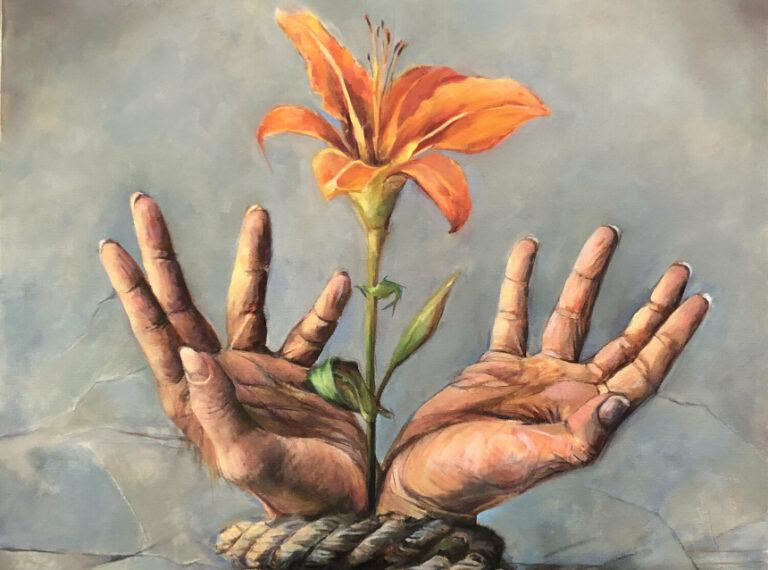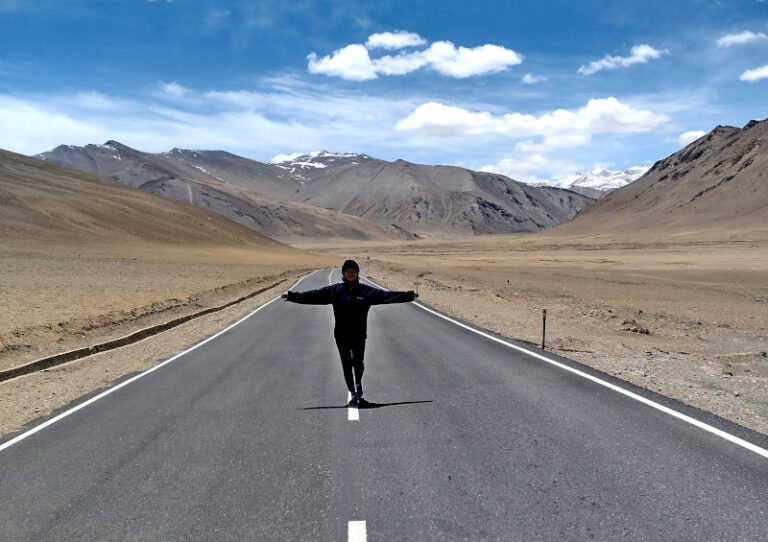“What more accurate stand or measure of good things do we have than the Sage?” ~ Aristotle
What is Christ Consciousness?
Christ consciousness is the state of awareness of your true nature, your higher self, and your interconnectedness with all things. It can be cultivated by anyone regardless of their religious tradition, as long as they are open to becoming a living vessel for love and truth.
Christ Consciousness is a spiritually evolved state of being. It harbors the qualities of love, devotion to truth, courage, and surrender. The term, therefore, refers to the expression of these qualities in our lives.
But what are the signs that you may be embodying Christ Consciousness? Let’s break them down…
1.) You have fine tuned your mind-body-soul:
“Develop your senses. Learn how to see. Realize that everything connects to everything else.” ~ Leonardo da Vinci
You realize that, in the grand scheme of things, you are indistinguishable from Cosmos. Deep meditation and nonattachment reveal this fact. The concept of interdependence emerges from this indistinguishability, and individuation manifests.
Christ Consciousness is Fractal. To think like Christ is not to have all the answers, but to be seized by the overwhelming realization that there are no answers and to respond to the overwhelm with the cultivation of better questions.
The primary focus is to ask the right questions. Answers are secondary. And even then, they must be subject to questioning. The purpose of questioning reality is to sharpen the mind-body-soul.
Answers lead to cul-de-sacs, dead-ends, dullness, and false “truths” (orthodox). Sharpness always comes from further questioning (unorthodox). Therefore, for the sake of Truth, you are proactive with questions and counteractive with answers.
There is no end-state. There is no final destination, no absolute Truth, no shiny Heaven or fiery Hell, no enlightenment, no concrete answers. There is only the Truth Quest.
Having liberated your mind-body-soul from delusion, you become a force of nature (cosmic/universal/infinite) first, a person second. You become undaunted, fearless. You become the tip of the spear, the sharpened edge of the Golden Ratio, the sword of God. You cut, and the road to Truth opens wide before you.
2.) You recognize that humankind is imperfect, fallible, and prone to mistakes:
“For all have sinned and fall short of the glory of God.” ~ Romans 3:23
You have a deep understanding that we are all fallible creatures floundering within an infallible universe. We are finite beings (mortals) perceiving an infinite cosmos (God). But your faith is also a deep hope that you might catch a glimpse of the absolute.
You may be a finite construct in an infinite universe, but you are connected to that universe in an infinite way. You are infinity all the way down, perceiving infinity all the way up. You’re simply stuck in a finite body which uses a fallible brain to perceive it all, which creates the paradox.
You understand that the only way to resolve the paradox is to embrace it and then transcend it. You have, therefore, accepted the fact that you are a fundamentally flawed, fallible, imperfect, and biased mortal (sinner), but through your Christ Consciousness you are able to detach yourself from it so that you may enjoy the paradox (God).
You realize that the real secret to becoming adaptable to paradox is to keep humility ahead of hubris. You never forsake one for the other, but you keep hubris on a shorter leash. You make sure the Ego works for the Soul and not the other way around.
3.) You have “died” and been reborn:
“The challenge and the problem of the God-man on the cross, is not simply something I am looking at, out there. The more conscious of myself I become, the more I realize that I too am hanging on that same cross.” ~ Alan Watts
Wisdom without humility is insensate; humility without wisdom is impotent. You have gained both wisdom and humility by being with Christ on that cross. By being with him on that cross you learned humility. By being with him when he was resurrected (born again) you learned wisdom. In between, you sharpened the blade of your Soul.
You had to lose God in order to find Him. You had to fall in order to rise up. In defeat, transformation. In death, new life (rebirth).
You were always hardwired for this type of wisdom. You just had to become vulnerable enough to receive it. You had to soften your heart. You had to loosen your grip. You had to shake yourself up. What Gandhi called “the annihilation of the self.” And from this annihilation you discovered individuation.
The alchemic phrase “solve et coagula (dissolve and coagulate)” is realized when the body becomes numinous (in death) and the numinous becomes corporeal (in rebirth). This dance with death transcends the old mind-body-soul dynamic and thus triggers the spiritual/alchemical process. Christ Consciousness is born.
Christ Consciousness is like the rising sun, golden, radiant, and enlightening. It gives color and shape to the black and white world. It’s the rising “son” of our ego’s death. From the blackening (death) on the cross to the whitening between worlds (sharpening) to the yellowing into rebirth (resurrection), your inner Christ grips the masterpiece of interconnectedness and embodies all things.
4.) You are walking your own path:
“It is better to live your own destiny imperfectly than to live an imitation of somebody else’s life with perfection.” ~ Bhagavad Gita
In Jung’s famous book The Red Book, he comes to a library inside a castle, looking for a place of sanctuary and reflection. When the librarian asks him to choose a book, he names The Imitation of Christ by Thomas à Kempis. He debates with the librarian what it would mean to imitate Christ today. He decides that since Christ imitated no one, this would mean going one’s own way and paying the full price for creating in a way that no one has before.
You don’t cultivate Christ Consciousness to become more Christ-like. You cultivate it to become more like yourself. It’s a tool toward individuation and self-actualization. Your goal is not to become a subject regressively, but to become a force of nature progressively.
Christ “does not bring peace, but a sword.” Thus, by cultivating Christ Consciousness, you are also drawing the sword. The reason you draw the sword is to cut away delusion, to shed the old skin in order to grow the new, to shave the superfluous from the God hypothesis.
5.) Your Hero’s Journey is about the journey not the destination:
“Whenever a knight of the Grail tried to follow a path made by someone else, he went altogether astray. Where there is a way or a path, it is someone else’s footsteps. Each of us must find our own way. Nobody can give you a mythology.” ~ Joseph Campbell
Christ Consciousness is the God in yourself searching for a personal mythology. It’s the part of you that understands that everything is connected to everything else. It’s your disconnected self in search of connection. It’s your independence in search of interdependence. It’s the part of you that understands that religions are merely steppingstones toward true spirituality. In short: The God in yourself is a Truth Seeker.
The search is the thing, not what’s found. The Truth Quest is the thing, not the “truth.” The journey is the thing, not the destination.
Truth Seekers are not looking to follow a religion. They don’t necessarily follow this or that law, tenant, or commandment. They simply follow the God in themselves, and that God in themselves is a questioner, an explorer, and a creator.
And so, your Christ Consciousness questions reality. It explores the cosmos. And it creates a mythology out of history, meaning out of meaninglessness, and a life well lived out of whatever life gives you.
As Joseph Campbell said, “It is not society that is to guide and save the creative hero, but precisely the reverse. And so every one of us shares the supreme ordeal––carries the cross of the redeemer.”
You understand that we all must carry the cross of the redeemer through the trials and tribulations of our own Hero’s Journey.
6.) You seek God as a personal experience:
“And finally, there is the third Jesus, the Cosmic Christ, the spiritual guide whose teaching embraces all humanity, not just the church built in his name. He speaks to the individual who wants to find God as a personal experience, to attain what some might call grace, or God-consciousness, or enlightenment.” ~ Deepak Chopra
Enlightenment is the cutting away of delusion. It’s the crumbling away of untruth. It’s seeing through the façade of religious pretense. It’s the complete eradication of everything we were culturally conditioned to believe.
Christ Consciousness is a mighty blade that cuts through delusion, illusion, and belief. It reveals that God was always hidden within. That Man is God asleep, and God is Man awake. That the Self was only ever a vital illusion, a tool we use to leverage cosmic interconnectedness.
As Plutarch stated, “The eye with which I perceive God is the same eye with which God perceives me.”
Christ Consciousness is the eye with which you perceive God seeing clearly enough to realize that it is the same eye with which God perceives you.
You realize that God is not a finite answer but an infinite question. God is not a closed-in period but an open-ended question mark. Therefore, you’ve decided to feed the question. Its food is curiosity, awe, astonishment. You don’t settle for an answer, for there lies stagnation, rotten fruit, and flies in the ointment.
Certainty is like standing water. It becomes murky, poisonous, undrinkable. You clear the water with curiosity. You keep it clean with constant and persistent inquiry, knowing that this prevents dogmatism and keeps the Truth Quest (God) ahead of the “truth” (false God).
As Paul Bowles said, “Security is a false God. Begin to make sacrifices to it and you are lost.” Therefore, you only ever sacrifice rigid ideals to flexible ideas. You crucify certainty. You “entertain a thought without accepting it.” You are always seeking God, and God is always seeking you.
7.) You practice Divine Love:
“When one has once fully entered the realm of love, the world — no matter how imperfect — becomes rich and beautiful, it consists solely of opportunities for love.” ~ Søren Kierkegaard
The Greeks have five words for the concept of love: Eros, sexual love; Storge, familial love; Phileo, friendly love; Xenia, hospitable love; and Agape, divine love.
You practice divine love. Divine love is Being Love. It transcends all other forms of love. When you are Being Love, you are in love with all of life—good or bad, successful or unsuccessful, tragic or comic.
Being Love is an unselfish, unconditional love for all things. It leaves you in a state of wonder and awe, soul-hungry for more beauty, more mystery, more life. When you are practicing agape love, you are practicing sacred presence.
As Rumi counseled, “Close your eyes. Fall in love. Stay there.”
Practicing divine love is “staying there.” When you are Being Love (unconditional), you’re in love with the interconnected cosmos (soul-centric) and you feel free, interdependent, passionate, alive, and connected. When you’re not Being Love (conditional), you’re only in love with your ego’s attachment to love (ego-centric) and you feel clingy, codependent, angsty, and disconnected.
Therefore, you have sacrificed your ego’s attachment to love through the sacred nonattachment of divine love. Through it you have grown to embody a sacred devotion to truth, courage, and surrender to God (Infinity).
Image Source
The Cosmic Christ Art Print by Sister Rebecca Shinas












